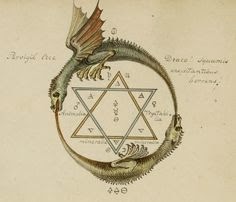The Four Pillars of Freedom
Freedom, explains Rishi Vasistha to Rama, has four pillars. Each pillar as important as the next one. The pillars are:
- Shanti (the Quietness of Mind)
- Bichara (the Spirit of Inquiry)
- Santosha (Contentment)
- Satsang (Good Company)
Shanti (the Quietness of Mind) means the mind is not longing for anything nor is rejecting anything. But is in utter acceptance to life. The mind is quite. Its peaceful, tranquil and importantly free. Free from the self created illusions. Shanti, according to Vasistha also means self control. But not in a dictatorial way. Self control as the process of self actualization.
Vasistha further explains, "He who wears the Armour of self control, is not harmed by sorrow."
The self controlled can also be compared to the 'middle way' of Buddha. Where one finds perfect harmony in the conundrums of life.
Bichara (the Spirit of Inquiry) means the purified intelligence. Vasistha explains that the inquiry must be unbroken, and must not fall under any boundaries. We can also compare this to the Pythagorean notion of philosophy. The lovers of wisdom. Purified intelligence is the wisdom.
The spirit of the inquiry is the best remedy for the cycles of Samsara (repetitive birth or ignorance.
In the light of the inquiry, one is in-tuned with the realization of the unchanging and eternal reality. The inquiry can also be seen as the self inquiry. 'Know thy know-er'. A person with spirit of inquiry has the sight within himself and in his periphery in the midst of all that he does.
It is better to be born as a frog in the mud, a worm in dung, a snake in a hole, but not be one without this eye.
Santosha (Contentment) is to renounce all cravings. By renunciation, Vasistha seems to mean non attachment.
Be satisfied with what comes unsought. Without being elated or depressed.
The contentment flowers the purity of heart.A content person owns the world even if he is a beggar. Hence Diogenes is richer than Alexander. Diogenes having nothing is the ruler of the world, and Alexander having everything is a beggar. The only thing that makes Diogenes a king is his contentment.
May be that's the reason why Alexander says , "I admire his obstinacy; nay, I almost envy it. — Farewell, old Cynic; and if it will flatter thy pride, be assured, I esteem thee so much, that was I notAlexander, I could desire to be Diogenes." To which Diogenes replies, "Go to the Gibbet, and take with thee as a mortification; that was I not Diogenes, I could almost content myself with being Alexander."
Satsang (Good Company) is to be in communion with the wise, the holy, and the enlightened. Vashistha explains that how much ever difficult, full of obstacles may the way be, and how much ever it might cost, one must never neglect a good company.
Satsang is indeed superior to all other forms of religious practices like charity, austerity, pilgrimages and the performance of religious rites.
Satsang, is made of two words Sat, which means the absolute truth and Sang which means union or company. We can hence understand Satsang as the union with the absolute truth, not just a good company.
According to Swami Shivananda, "As long as ignorance remains, direct realization of Brahman is impossible. When ignorance is replaced by wisdom, the real nature reveals itself. This is the highest satsang."
Rishi Vasistha explains to Rama,
Therefore, O Rama, strive by all means to cultivate these noble qualities. He who is endowed with the qualities that I have enumerated thus far is qualified to listen to what I am about to reveal. (II:11)



Comments